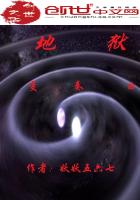Zeno's reasoning, however, is fallacious, when he says that if everything when it occupies an equal space is at rest, and if that which is in locomotion is always occupying such a space at any moment, the flying arrow is therefore motionless. This is false, for time is not composed of indivisible moments any more than any other magnitude is composed of indivisibles.
Zeno's arguments about motion, which cause so much disquietude to those who try to solve the problems that they present, are four in number. The first asserts the non-existence of motion on the ground that that which is in locomotion must arrive at the half-way stage before it arrives at the goal. This we have discussed above.
The second is the so-called 'Achilles', and it amounts to this, that in a race the quickest runner can never overtake the slowest, since the pursuer must first reach the point whence the pursued started, so that the slower must always hold a lead. This argument is the same in principle as that which depends on bisection, though it differs from it in that the spaces with which we successively have to deal are not divided into halves. The result of the argument is that the slower is not overtaken: but it proceeds along the same lines as the bisection-argument (for in both a division of the space in a certain way leads to the result that the goal is not reached, though the 'Achilles' goes further in that it affirms that even the quickest runner in legendary tradition must fail in his pursuit of the slowest), so that the solution must be the same. And the axiom that that which holds a lead is never overtaken is false: it is not overtaken, it is true, while it holds a lead: but it is overtaken nevertheless if it is granted that it traverses the finite distance prescribed. These then are two of his arguments.
The third is that already given above, to the effect that the flying arrow is at rest, which result follows from the assumption that time is composed of moments: if this assumption is not granted, the conclusion will not follow.
The fourth argument is that concerning the two rows of bodies, each row being composed of an equal number of bodies of equal size, passing each other on a race-course as they proceed with equal velocity in opposite directions, the one row originally occupying the space between the goal and the middle point of the course and the other that between the middle point and the starting-post. This, he thinks, involves the conclusion that half a given time is equal to double that time. The fallacy of the reasoning lies in the assumption that a body occupies an equal time in passing with equal velocity a body that is in motion and a body of equal size that is at rest; which is false. For instance (so runs the argument), let A, A...be the stationary bodies of equal size, B, B...the bodies, equal in number and in size to A, A...,originally occupying the half of the course from the starting-post to the middle of the A's, and G, G...those originally occupying the other half from the goal to the middle of the A's, equal in number, size, and velocity to B, B....Then three consequences follow:
First, as the B's and the G's pass one another, the first B reaches the last G at the same moment as the first G reaches the last B. Secondly at this moment the first G has passed all the A's, whereas the first B has passed only half the A's, and has consequently occupied only half the time occupied by the first G, since each of the two occupies an equal time in passing each A. Thirdly, at the same moment all the B's have passed all the G's: for the first G and the first B will simultaneously reach the opposite ends of the course, since (so says Zeno) the time occupied by the first G in passing each of the B's is equal to that occupied by it in passing each of the A's, because an equal time is occupied by both the first B and the first G in passing all the A's. This is the argument, but it presupposed the aforesaid fallacious assumption.
Nor in reference to contradictory change shall we find anything unanswerable in the argument that if a thing is changing from not-white, say, to white, and is in neither condition, then it will be neither white nor not-white: for the fact that it is not wholly in either condition will not preclude us from calling it white or not-white. We call a thing white or not-white not necessarily because it is be one or the other, but cause most of its parts or the most essential parts of it are so: not being in a certain condition is different from not being wholly in that condition. So, too, in the case of being and not-being and all other conditions which stand in a contradictory relation: while the changing thing must of necessity be in one of the two opposites, it is never wholly in either.
Again, in the case of circles and spheres and everything whose motion is confined within the space that it occupies, it is not true to say the motion can be nothing but rest, on the ground that such things in motion, themselves and their parts, will occupy the same position for a period of time, and that therefore they will be at once at rest and in motion. For in the first place the parts do not occupy the same position for any period of time: and in the second place the whole also is always changing to a different position: for if we take the orbit as described from a point A on a circumference, it will not be the same as the orbit as described from B or G or any other point on the same circumference except in an accidental sense, the sense that is to say in which a musical man is the same as a man. Thus one orbit is always changing into another, and the thing will never be at rest. And it is the same with the sphere and everything else whose motion is confined within the space that it occupies.














